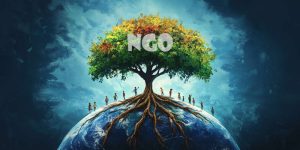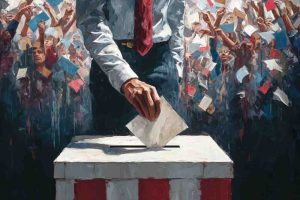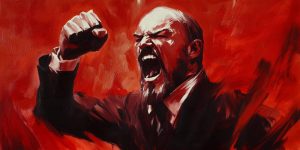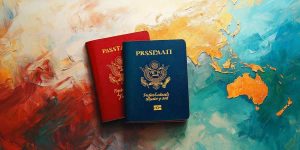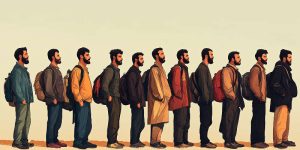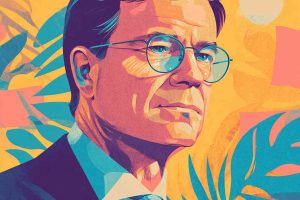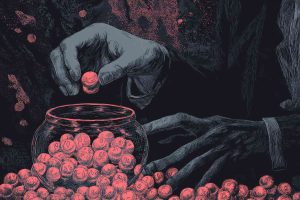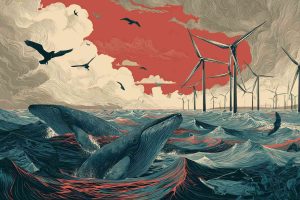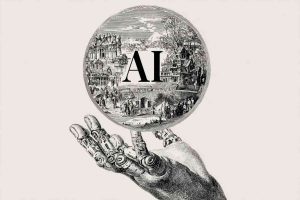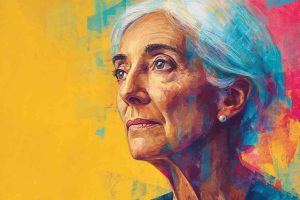The boundless tolerance for intolerant cultures and how it destroys Western democracies
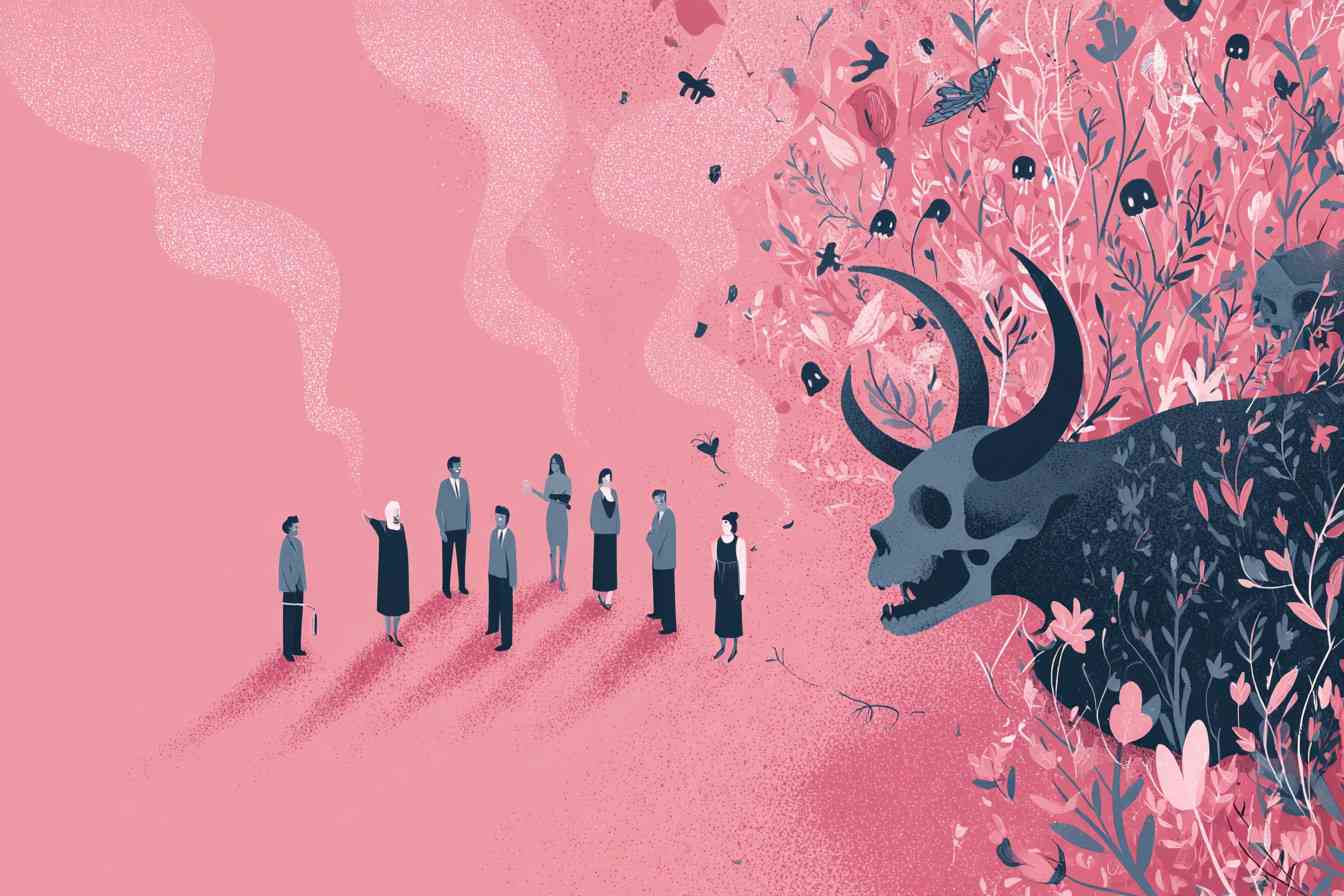
The paradox of modern tolerance
Western democracies have long prided themselves on their openness, pluralism, and tolerance. These values are the cornerstones of societies that fought for centuries to liberate themselves from dogma, religious domination, and autocracy. Freedom of expression, equality before the law, and the right to live according to one’s conscience were born out of these struggles. They became the defining features of Western civilization, the foundation on which modern democracy, science, and human rights were built.
Yet in a strange twist of irony, these very achievements now appear to be under threat, not from outside enemies, but from within. The West has developed a form of self-destructive tolerance: an unlimited willingness to accept even those who reject its core principles. In the name of inclusivity and multiculturalism, Western democracies increasingly tolerate intolerance. The same societies that once opposed tyranny and religious control now allow ideologies that seek to reimpose them under the cover of “cultural respect.”
The philosopher Karl Popper warned about this danger in The Open Society and Its Enemies (Popper). He argued that tolerance must have limits. A tolerant society, he wrote, cannot afford to tolerate those who would destroy tolerance itself. If a democracy refuses to defend itself against its own enemies, it paves the way for its collapse. The problem is not that tolerance exists, but that it has been stripped of discernment. When tolerance becomes unconditional, it loses its meaning, it no longer defends freedom, it invites submission.
The cultural collision: when tolerance becomes submission
Over recent decades, Western countries have seen a large influx of migrants from regions where democratic norms, gender equality, and freedom of speech are not deeply rooted. Many of these newcomers come from societies shaped by strict religious codes, patriarchal traditions, and a deep distrust of secularism. Migration, in theory, should enrich societies through exchange and adaptation. In practice, however, the ideal of multicultural harmony has often given way to a growing cultural collision.
Sociologist Ruud Koopmans examined this phenomenon in Assimilation oder Multikulturalismus? (Koopmans). His research demonstrated that multiculturalism, when taken as an ideology rather than a social fact, tends to produce parallel societies instead of integration. When groups isolate themselves from the wider community and are not expected to adapt to the norms of their host country, they begin to replicate the social and moral structures of their countries of origin. The consequence is that Western nations become home to communities that reject the very freedoms that allowed them to settle there.
Tolerance in such contexts begins to look less like openness and more like appeasement. The West, fearful of being accused of racism or cultural imperialism, refrains from defending its own standards. When religious rules discriminate against women or justify violence, these practices are often excused as part of “cultural identity.” When criticism arises, it is dismissed as Islamophobia or colonial prejudice. Instead of insisting that newcomers adapt to democratic norms, politicians often adapt democracy to the sensitivities of the newcomers.
The result is a moral inversion: intolerance is shielded by tolerance, and the defense of universal rights is denounced as extremism. Political leaders who dare to question this dynamic are branded as xenophobic or populist. Those who warn of the dangers of parallel societies are accused of “spreading fear.” Meanwhile, the very societies that claim to be strong and self-assured slowly lose the confidence to define their own moral boundaries.
The erosion of fundamental freedoms
Few freedoms symbolize the spirit of Western civilization more than freedom of speech. It is the right that underpins all others, the ability to question authority, religion, and tradition without fear of punishment. Yet in the current climate, this freedom is being quietly eroded.
The murder of Theo van Gogh in 2004 exposed the danger of cultural cowardice. His killer was not offended by a personal insult, but by the very notion that his religion could be criticized. Rather than standing firmly for free expression after the attack, many Western institutions retreated into caution. Filmmakers, artists, and journalists began to censor themselves. The message was clear: certain subjects were now off-limits if one wished to avoid “provoking” violence.
The murder of the French teacher Samuel Paty in 2020 for showing caricatures of Muhammad underscored how deep this fear had become. Instead of uniting in defense of free thought, parts of society responded with calls for “respect” toward religious sensitivities. In other words, the victim, not the killer, became the problem. This inversion of responsibility reflects the West’s crisis of confidence: the inability to defend its most sacred principles against moral blackmail.
As Ayaan Hirsi Ali has observed in Heretic (Ayaan Hirsi Ali), Europe’s growing tendency to appease religious fanaticism represents a betrayal of its Enlightenment heritage. Freedom of speech, she writes, is not negotiable. Once we begin to make exceptions, once we allow certain groups to claim exemption from criticism, freedom ceases to be universal. It becomes a privilege of the unoffended.
The moral confusion of the elites
At the heart of this crisis lies a moral confusion among Western elites. Driven by guilt over colonialism and slavery, and by an almost religious belief in cultural equality, many intellectuals and politicians have embraced what Pascal Bruckner calls “the tyranny of repentance” in La Tyrannie de la Pénitence (Bruckner). In this worldview, the West is always guilty, and the non-Western world always victimized.
Under this ideology, the moral high ground belongs not to those who defend universal rights, but to those who express the greatest humility toward “the other.” As a result, Western societies now accept in silence practices they would never tolerate among their own citizens, forced marriages, honor killings, religious segregation, and female genital mutilation. These are excused as “cultural differences, ” even when they violate basic human rights.
When incidents of violence or oppression arise within certain communities, politicians and media commentators rarely attribute them to cultural or religious beliefs. Instead, they blame “social exclusion, ” “poverty, ” or “lack of opportunities.” The underlying issue, the refusal to adopt Western norms, is left unspoken. Cultural relativism has become not a philosophy of understanding, but a mechanism of denial.
This denial allows elites to maintain the illusion of harmony while ignoring the erosion of civic cohesion. As philosopher Roger Scruton warned in The West and the Rest (Scruton), when a civilization loses faith in its own moral foundation, it becomes unable to defend itself. The West’s weakness today is not military but moral. It has forgotten how to say no.
The gender paradox
Perhaps the most striking example of this moral disorientation is the question of women’s rights. Western feminism, once the spearhead of the struggle against patriarchy, now finds itself entangled in cultural relativism. In the name of diversity, many feminists now defend practices they would once have condemned. The headscarf, for instance, which in many Islamic societies symbolizes control over women’s bodies, is now hailed as a sign of empowerment when worn in Europe.
Criticism of such symbols is met with accusations of Islamophobia or cultural intolerance. Yet the reality, as Ayaan Hirsi Ali demonstrates in Prey (Ayaan Hirsi Ali), is that many women in immigrant communities face mounting pressure to conform to conservative norms. Instead of being liberated by the freedoms of Western society, they find themselves trapped between two worlds: a liberal state that refuses to intervene and a traditional community that punishes dissent.
This hypocrisy undermines decades of progress. Feminists who once fought against the subjugation of women now justify it as “cultural choice.” Political leaders who proclaim gender equality in public quietly ignore violations in private. The Western commitment to women’s rights has become conditional, strong in rhetoric, weak in practice.
The silence of fear
The psychological consequence of this boundless tolerance is a pervasive culture of fear. Teachers avoid controversial subjects. Journalists downplay cultural tensions. Policymakers speak in coded language about “integration challenges.” Citizens who voice concerns are vilified as bigots.
This atmosphere of self-censorship is not the result of state repression but of social intimidation. It is enforced by media orthodoxy and political correctness, both of which punish dissent. The irony is profound: societies that once celebrated free thought now suppress it in the name of tolerance.
In Reflections on the Revolution in Europe (Christopher Caldwell), the author notes that Europe’s public discourse has become paralyzed by fear of moral judgment. The more serious the issue, the less willing people are to discuss it openly. Fear replaces debate; silence replaces truth.
The result is fragmentation. Communities live side by side but not together. In certain neighborhoods, civil law is replaced by religious authority. Police forces tread carefully to avoid “provoking” unrest. When a government is afraid to enforce its own laws, it signals weakness, and weakness invites contempt.
The consequences for democracy
Democracy, by definition, requires shared values. These values need not be uniform, but they must be fundamental: respect for the rule of law, equality between the sexes, and freedom of conscience. Without these, democratic institutions lose legitimacy. When large groups of citizens reject these foundations, democracy becomes hollow, a structure without substance.
Elections then turn into contests of identity rather than principle. Political parties cater to tribal or religious voting blocs instead of appealing to shared civic ideals. Public debate becomes constrained, as any criticism of cultural differences is framed as discrimination. The democratic space narrows until it resembles the very authoritarianism it was meant to oppose.
In Le suicide de l’Occident (Jean-François Revel), the author warned that Western democracies rarely die from external threats. They die from self-inflicted wounds, from moral fatigue, complacency, and confusion. Boundless tolerance is one such wound. It erodes the confidence of free societies, leaving them defenseless against those who despise their freedoms.
Restoring moral boundaries
To restore resilience, the West must reclaim the moral clarity it once possessed. This begins with acknowledging that not all cultures are compatible with democracy. Respecting diversity does not mean accepting practices that violate human dignity. Human rights, gender equality, and freedom of speech are not Western inventions to be apologized for, they are universal principles born of human experience.
Those who choose to live in Western societies must accept these norms as the framework of coexistence. This is not intolerance; it is the basis of a functioning democracy. Just as freedom requires laws, tolerance requires boundaries.
True tolerance is not passive acceptance but active discernment. It allows diversity to flourish within a common moral structure. It does not excuse oppression, nor does it submit to fear. The West must once again find the courage to defend its values openly, unapologetically, and intelligently.
The way forward: courage instead of complacency
Western societies stand at a historical crossroads. They can continue down the path of self-denial, cultural relativism, and moral paralysis, or they can reaffirm the ideals that made them prosperous and free. This choice will determine whether the next century belongs to free individuals or fearful communities.
The path forward requires courage: the courage to defend the right to offend, to speak truth without apology, to draw moral distinctions even when they are uncomfortable. It requires political leaders who prioritize truth over popularity, and educators who teach young people that freedom is not a gift but a responsibility.
As Salman Rushdie once said, “What is freedom of expression? Without the freedom to offend, it ceases to exist.” This is not merely a statement about art or speech, it is a warning about civilization itself. The moment the West begins to censor itself out of fear or guilt, it ceases to be the West.
Boundless tolerance is not a virtue; it is a weakness masquerading as compassion. True compassion lies in defending the values that allow all people, regardless of origin, to live freely and equally. To do otherwise is to abandon the very idea of civilization.
The time has come for the West to rediscover the strength of conviction. To stand, once again, for freedom, equality, and reason, not as slogans, but as living principles. The survival of democracy depends not on how tolerant we are, but on whether we still believe in something worth defending.


